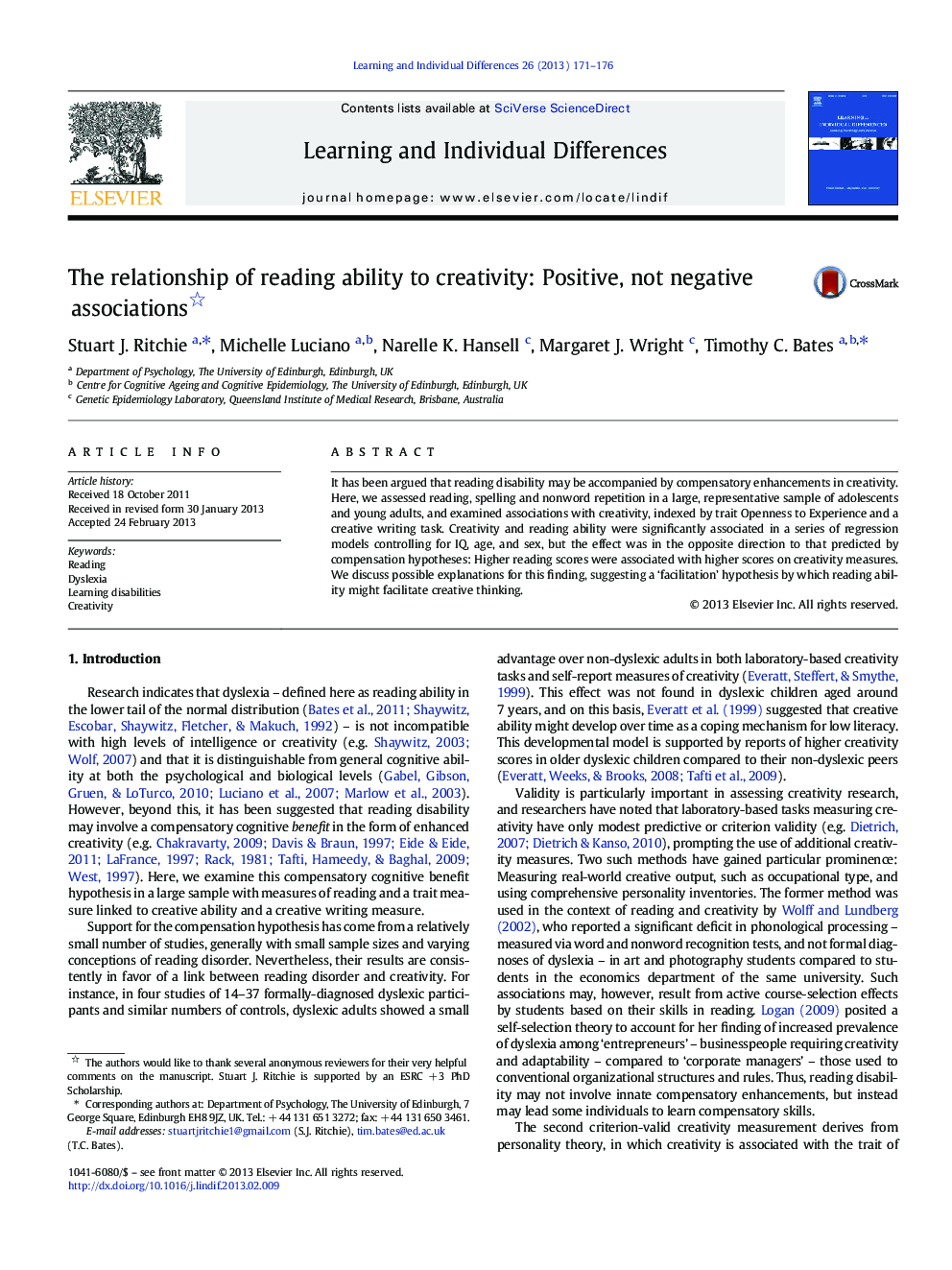| Article ID | Journal | Published Year | Pages | File Type |
|---|---|---|---|---|
| 364839 | Learning and Individual Differences | 2013 | 6 Pages |
•We test hypotheses that those with reading disability are compensated with enhanced creativity.•We use a large sample aged 12–26, measured on reading and personality variables.•Stronger reading was in fact linked to higher creativity, controlling for IQ.•A facilitation hypothesis is suggested, in which reading enhances creativity.
It has been argued that reading disability may be accompanied by compensatory enhancements in creativity. Here, we assessed reading, spelling and nonword repetition in a large, representative sample of adolescents and young adults, and examined associations with creativity, indexed by trait Openness to Experience and a creative writing task. Creativity and reading ability were significantly associated in a series of regression models controlling for IQ, age, and sex, but the effect was in the opposite direction to that predicted by compensation hypotheses: Higher reading scores were associated with higher scores on creativity measures. We discuss possible explanations for this finding, suggesting a ‘facilitation’ hypothesis by which reading ability might facilitate creative thinking.
